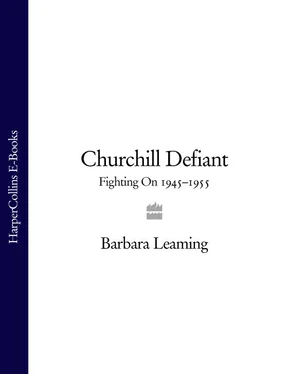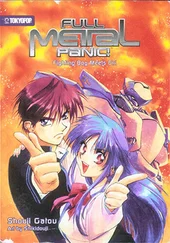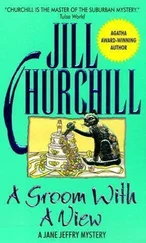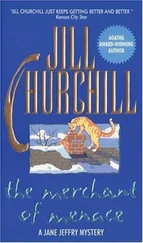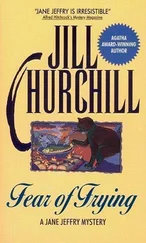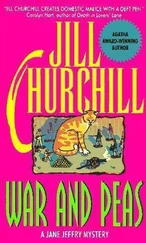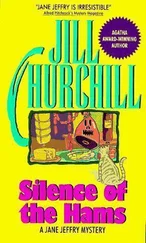In no mood to speak of victory, he acknowledged the cheers by mechanically raising his right arm and forming the familiar V-sign. Then he climbed into a waiting car for the return trip to Potsdam, outside Berlin, where he was due to face his Soviet and American counterparts. The talks, for which Churchill had been militating since May, were to have begun that afternoon, but the arrival of the Soviet leader, Joseph Stalin, had been inexplicably delayed. Potsdam was being billed as a victory conference, but Churchill privately regarded it as a chance to stage a ‘showdown’ with Stalin about Soviet territorial ambitions.
The Big Three – Churchill, Stalin, and President Franklin Roosevelt – had last met at Yalta, in the Crimea, in February. But by the time he had assured the House of Commons that Stalin meant to keep his promise given at Yalta of free elections in the countries the Soviets had liberated from Germany, Churchill had already begun to be troubled by doubts. He worried that by trusting Stalin he might have made the same mistake that his predecessor, Neville Chamberlain, had committed with Hitler.
In March, Berlin became the focal point of Churchill’s concerns when the Supreme Commander of the Allied Forces in Europe, Dwight Eisenhower, informed him that rather than try to take the Reich capital with American and British forces, he intended to let the Russians get there first. Churchill moved at once to persuade Eisenhower that he was about to make a calamitous error with far-reaching consequences. In separate messages to Eisenhower and Roosevelt, Churchill argued that, as the Soviet armies were about to enter Vienna and overrun Austria, should they also be permitted to take Berlin it would strengthen their conviction, already alarmingly in evidence, that they were chiefly responsible for Hitler’s defeat and that the spoils were rightly theirs.
Churchill had no doubt that Stalin, whom Eisenhower had also informed of his intentions, well understood the symbolic and political significance of the Reich capital falling into Soviet hands. So when Stalin fulsomely complimented Eisenhower and assured him that the Soviet Union would send only second-rate forces to Berlin – which, he underscored, had ‘lost its former strategic importance’ – Churchill’s worst suspicions were confirmed. Churchill implored Eisenhower to pay particular attention to what was obviously a lie on Stalin’s part. But Eisenhower flatly refused. Eisenhower had Roosevelt’s backing when he declined even to attempt to race the Russians to Berlin. The Americans were not a little annoyed at Churchill’s insinuations about their Soviet ally’s postwar designs. Roosevelt had long insisted that Stalin was a man of good will and good faith who wanted nothing but security for his country, and that if the US gave him whatever he asked for, he could be counted on to work for a world of democracy and peace after the war and to refrain from annexing any territory. Meanwhile, on the very day – 1 April 1945 – that Stalin had written to congratulate Eisenhower on his sound thinking, he ordered two of his top military chiefs to capture Berlin post-haste.
Driving through the ruins of the former Reich capital, Churchill sat in silence. His car passed endless rows of saluting Russian soldiers, directional signs printed in Cyrillic characters, and red-bordered posters bearing the sayings of Stalin translated into German above his signature etched in vivid red. It was as if Stalin had branded Berlin, fashioned it into his personal war trophy. The Russians all seemed ‘high as kites’, convinced, as Churchill had predicted they would be, that they were principally responsible for having won the war. The shattered capital, where street after street had been reduced to rubble and where the stench of putrefying corpses and broken sewer lines fouled the air, was an image of the collapse of the Nazi empire. Churchill grimly perceived something more. To his eye, the ubiquitous, overpowering Red Army presence augured the rise of Soviet power in postwar Europe.
Hardly had Berlin surrendered to the Russians, on 2 May 1945, when Churchill had hatched a plan. Experience had taught him that Stalin was not a man to be swayed by arguments based on abstract principles. ‘Force and facts’ were his only realities. Brutal and unscrupulous, Stalin would do whatever he perceived to be in his own interest. The Americans had penetrated 120 miles deeper into Germany than originally planned. Churchill believed that gave him the leverage he needed to settle things peacefully with Stalin. The trick was to postpone pulling American troops back to the previously agreed-upon lines until Churchill was satisfied about both the temporary character of the Soviet occupation of Germany, and conditions in the countries liberated by the Red Army. Germany as a whole had yet to surrender when Churchill urgently contacted President Harry Truman, who had succeeded to office upon Roosevelt’s death in April. He urged the former vice president that they invite Stalin to a heads of government meeting to take place as soon as possible and that in the interim they maintain their troops in existing positions in order to show the Soviets ‘how much we have to offer or withhold’. From this point, everything depended on Truman. Roosevelt and Eisenhower had failed to listen to Churchill about Berlin. Could he hope for a better response from Truman, whom he had not yet met?
Churchill’s telegram was sent on 6 May. The following day, German generals signed the act of unconditional surrender of all German land, sea, and air forces in Europe. On 8 May, Victory in Europe Day, Churchill announced in a radio broadcast that the German war was at an end; only Japan remained unsubdued. London exploded in a paroxysm of celebration. From first to last, the Prime Minister was at the centre of the festivities. When he cried out to a vast crowd assembled beneath his balcony, ‘This is your victory,’ the people roared back, ‘No, it’s yours!’ A tender man easily moved to tears whether of joy or sorrow, Churchill made no secret of his pleasure in lapping up the affection and admiration, yet he remained oppressed by forebodings as he awaited Truman’s answer. He ended the long, emotionally charged day by sharing his concerns with a friend, the newspaper proprietor Lord Camrose, who had come to dine at 10 Downing Street.
While the noisy celebrations continued in the streets, Churchill spoke sombrely and confidentially of what would happen if Truman turned him down and the troops were withdrawn. Stalin would control seven European capitals in addition to Berlin: Prague, Budapest, Warsaw, Belgrade, Bucharest, Sofia, and Vienna. As far as Churchill was concerned, that could not be permitted.
When Truman replied the next day that he preferred to wait for Stalin to propose a meeting, Churchill refused to take no for an answer. He wanted a leaders’ meeting as soon as possible and suggested that he and Truman confer first in London in order to present a united front. The new president, who seemed to have in -herited his predecessor’s unrealistic view of Stalin, demurred on the grounds that he wished to avoid any impression of ‘ganging up’. Churchill warned bluntly that the Soviets had drawn down an ‘iron curtain’ upon their front and that the rest of humanity had no idea of what was going on behind it. He argued that surely it was vital to come to an understanding with the Soviet Union or at least see how things stood before American troops retired to the agreed zones of occupation.
Truman sent an emissary to London to convey what he did not wish to put in writing: Truman wanted to see Stalin first – without Churchill. The British Prime Minister could join them later. When Churchill waxed indignant, the emissary, Joseph Davies, went so far as to blame him for having provoked Stalin with his abiding hostility towards the Soviet Union. Truman’s representative maintained that in fact it was Churchill’s attitude that ‘placed not only the future, but possibly the immediate peace in real danger’.
Читать дальше
